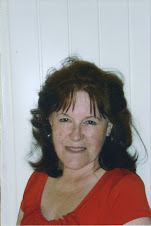During that first year after a family member has sustained a brain injury, it can be an extremely stressful and lonely time. But we are not alone; the incidence of brain injury is higher than one would expect.
After my partner’s serious motorcycle accident, I realized how difficult it was to get information on brain injuries or on how family members can help their brain-injured loved one. Following a brain injury it is necessary for those close to the injured person to know what to do when dealing with the monumental changes in both of their lives.
Often during the first few months when talking to medical staff, I felt it was difficult to get answers; partly because at the beginning very little was known about the severity of his injury or what the results of the injury would be. I also suspected that some of the information I was given may have been designed to not build up any hopes on my part. Further, I became aware that the more questions I asked, the more variety of answers I received with each person appearing to have a different opinion on both his injury as well as his prognosis. This may possibly have been because no two head injuries are the same.
The hospital library, I discovered, was a good place to start to initially look for information; the librarian I approached gave me some very good websites to check out. There are also many other sources available on internet. Brain Injury Associations are also excellent avenues for obtaining information, as well as brain injury support groups. And don’t forget the social worker at the hospital – she will have a lot of useful information for after the injured person returns home. But you must ask the questions because no one will come to you with answers to questions you have not voiced. It is absolutely necessary to be proactive in your loved one’s health care. This includes making sure that your injured family member will receive cognitive exercises as soon after their injury as possible even if it means doing them yourself.
At the beginning there may seem to be little progress; with a brain injury it is often two steps forward and one step back. The steps are small and sometimes may only be noticed after a big change has taken place. I was told that the majority of change takes place in the first year with possibly some improvement up to two years post-injury but in my partner’s case, there was some progress even after the two year time period.
During the first year the survivor will often experience confusion, short-term memory difficulties, anger, sometimes violence and possibly depression. I discovered that the extreme confusion lessened after about two months but after three years, my partner’s short-term memory problems have not improved. Often medication can assist with some of the other issues. There will sometimes be other deficits as well that will need to be dealt with such as lack of motivation problems, reasoning abilities, rigidity of thinking and anger.
It is very important also, when you are the caregiver, to remember that although what has happened is a tragedy for the injured person, it is a tragedy for his loved ones too. You must remember that you are important also and as such, you must set boundaries. Do not allow yourself to be verbally or physically abused. It is important that we take time for ourselves and not feel guilty about it.
Joining a brain injury support group, if there is not a strong network of supportive family and friends, will be helpful to the caregiver during the first year following their injured loved one’s accident. And remember, eventually that first difficult year will become history.
Tuesday, September 29, 2009
Subscribe to:
Posts (Atom)



